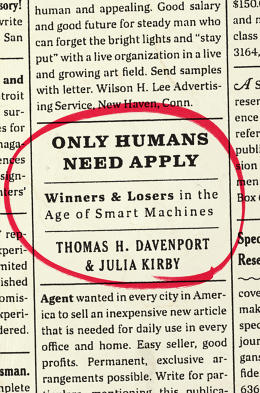#BestofFSCBlog :Got Kids? Important Skills to Develop for Success in 2020 & Beyond. Must Read!
For workers across all sectors, the ground is shifting quickly. The way that people used to build lasting careers, often through becoming “deep domain experts,” is no longer enough to guarantee a future. New technologies like Artificial Intelligence and Machine Learning are supplanting many traditional roles and changing many others. As the McKinsey Global Institute puts it,
“All workers will need to adapt as machines take over routine and some physical tasks.”
This doesn’t have to be bad news. In fact, the changes underway can bring new, exciting opportunities for everyone who’s ready and willing to grow and develop new skills.
Through my work at Filtered, a company that takes a technological and human approach to recommending learning opportunities, I’ve come to see which skills are indispensable — and most likely to empower you to succeed in the decade ahead.
Understanding ‘power skills’
For years, workers have been hearing that data science and other related skills are in extremely high demand. (“You probably should have majored in computer science,” Quartz once said in a headline.)
That demand remains. Organizations need technological know-how to stay on top of new trends and to try to fend off against disruption. But these are no longer the skills companies need most.
The most important skills today are those that are usually called “soft” skills. Now, some call them “power” skills or “behavioral” skills.
These skills include collaboration, communication, creative thinking, work ethic, teamwork, networking, decision making, positivity, time management, motivation, versatility, problem-solving, critical thinking, and conflict resolution.
“Executives’ views regarding the priority of critical skills have taken a turn from digital and technical to behavioral,” IBM’s Institute for Business Value reported recently in a survey of thousands of executives. The top four skills that executives deem most critical for today’s workforce are: agility; time management; teamwork and effective communication.
Like this Article? Share It! You now can easily enjoy/follow/share Today our Award-Winning Articles/Blogs with Now Over 2.5 Million Growing Participates Worldwide in our various Social Media formats below:
LinkedIn: https://www.linkedin.com/in/chris-g-laughter-b46389198/
Facebook: http://www.facebook.com/pages/First-Sun-Consulting-LLC-Outplacement-Services/213542315355343?sk=wall
Twitter: Follow us @ firstsunllc
Best Daily Choice: Follow the Best of FSC Career Articles/Blogs @
https://twitter.com/search?q=bestoffscblog&src=typeahead_click
Question: Want the ‘the best/current articles/blogs on the web’ on Job Search, Resume, Advancing/Changing your Career, or simply Managing People?
Answer: Simply go to our FSC Career Blog below & type(#career, #leadership, #life) in Blog Search: https://www.firstsun.com/fsc-career-blog/
What Skill Sets do You have to be ‘Sharpened’ ?
Continue of the article:
Why these needs will last
Change is happening at an unprecedented pace, as technological progress (including digital transformation) and global political unrest make for a highly unpredictable world. Smart businesses recognize that it’s very difficult to know how they’ll have to pivot in the future. Change really is the only constant.
At a time like this, what organizations need most are individuals and teams that can adapt and grow, helping the business to survive and even thrive. This is why developing a “growth mindset,” an ability to act mindfully, and a high level of resilience have become much more pragmatic and important than ever. All these power skills can, in fact, be learned and improved.
In-demand technical skills
Of course, traditional skills, sometimes called “core skills,” will also continue to give you a leg up over competitors as you work to build a career, so it’s important not to neglect them. The IBM survey found that the most critical are “analytics skills and business acumen,” followed by “technical core capabilities for STEM” and “basic computer and software/application skills.” That last category includes Excel, which I advise everyone to become proficient at.
Interestingly, foreign language proficiency is in IBM’s top 10 as well. Even with technologies like Google Translate helping people have conversations across different languages, the ability to effortlessly communicate with people around the world and understand nuances and turns of phrase can go a long way in helping build relationships — which remain the purview of humanity, not machines.
How to learn
The world is filled with learning resources, from articles to TED Talks, podcasts, infographics, well-chosen Twitter accounts and, of course, books. Fortunately, many companies are investing heavily in making resources available for their employees. Just as importantly, some businesses are carving out time in workers’ schedules to allow them to develop new skills.
Still, for workers this process can seem overwhelming. With a world of resources available, where do you begin?
Some top employers are taking new steps to help with this. Understanding the need to offer long-term career paths, they’re starting to focus their learning resources specifically on the kinds of skills they need. They’re aligning their self-directed learning cultures with changes underway inside the business. They’re saying to employees: here are the skills we expect we’ll continue to need in the years ahead. And here are some tools to help you learn them. It’s as though, rather than being dropped into a field of learning and told to walk in any direction, employees are given a digital map with GPS and multiple destinations available.
I recommend that workers actively take advantage of these opportunities. And when you interview with new companies, ask them about their skill needs and learning resources. The more you show an interest in developing the skills needed for the future, the more desirable a candidate you become — and any company will be lucky to have you.
Author: Marc Zao-Sanders is co-founder and CEO of Filtered, which helps individuals and companies learn to become more productive.
GlassDoor.com | January 6, 2020






